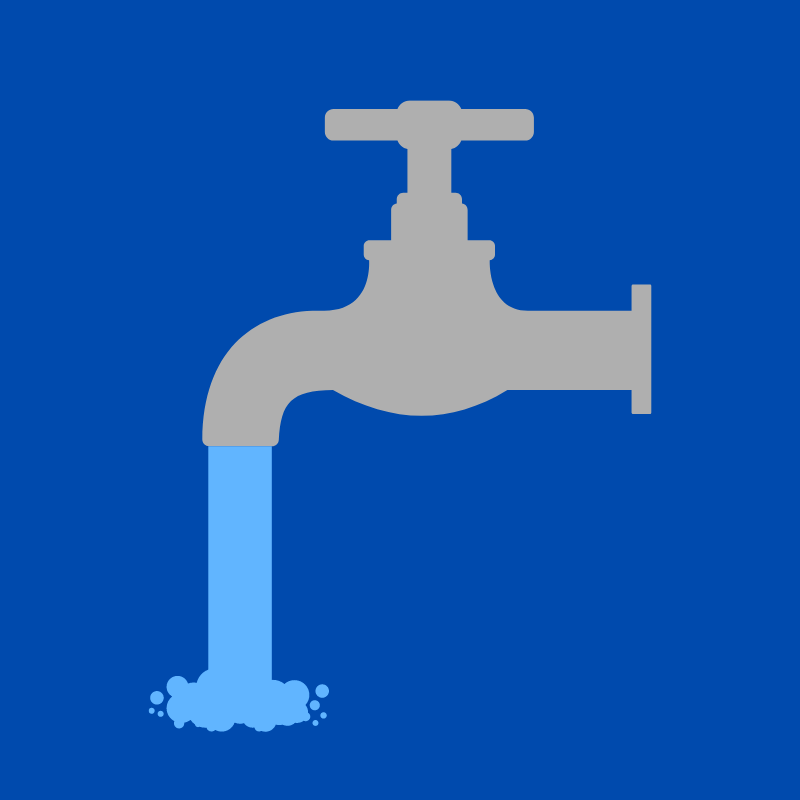When you open a faucet in your home, you expect the water flowing from the spout will be clean, fresh, and free of pollutants, but unfortunately, this is not always the case. Some water reaching your home may still have some percentage of heavy metals, PFAs, viruses, and bacteria, and, in over 85% of homes in the US, the water contains high levels of dissolved materials creating what is known as hard water.
waThe Job Of A Water Softener reverse the effects of hard water by removing or altering the makeup of these dissolved materials. Both salt-based and salt-free softeners achieve this goal, but they go about it in different ways. The most damaging effects of hard water are how it destroys plumbing pipes, fixtures, and water-using appliances, as it creates corrosion and scaling.
In this article, we will learn how hard water is produced by natural processes and the problems those with hard water must face. We will look at how the hardness of water is determined and how you can know if your home is being affected by hard water minerals. We then will compare salt-based systems with salt-free softeners so you can determine which system is best for you.
The Origins Of Hard Water
As water passes through soil and rock, it is naturally filtered as certain chemicals and other pollutants are removed. Still, as the water is exposed to the ground, it also picks up some mineral solids, which remain in the water until it arrives at your home.
While it is true that most of these minerals are beneficial to your water quality and support your health, they can also be the reason why you experience frequent plumbing issues such as clogged pipes and premature replacement of plumbing fixtures.
Hard water can be destructive to your plumbing and create conditions that lower the quality of your life. Next, we will examine the effects hard water has on you and your home.
Effects Of Hard Water
Hard water is found to some degree in the majority of homes across the US. It can negatively affect the physical structure of your home and make your everyday tasks less efficient.
Plumbing
The most damage caused by hard water minerals such as calcium and magnesium occurs to your plumbing system. These mineral solids cling to the interior linings of plumbing pipes and fixtures, causing a reduction in water flow and an increase in clogs.
Corrosion also interferes with the normal operation of water-using appliances such as washing machines and dishwashers. This accumulating debris is referred to as corrosion which leads to scaling and can be seen as a hard white crusty build-up on faucets, showerheads, and as spots on glassware.
Scale is responsible for early replacement of appliances due to extra wear and tear and will contribute to soap scum remaining on surfaces.
Personal
In addition to its negative effects on your plumbing system, hard water can affect how you experience life. First, hard water requires you to use more soap, cleaning supplies, and personal hygiene products than if you had soft water. This is a waste of money and in today’s economy, no one can afford to waste hard-earned dollars.
Hard water also affects the quality of your hair and skin by drying it out, leaving it brittle and rough. The same goes for your clothing since hard water causes laundered items to become grey and dingy and their fibers to become weak, making your clothes look more worn than they are.
How Hardness Is Measured
Of course, less hard water creates less damage compared to water that rates as extremely hard. A scale has been developed to help homeowners determine the hardness of their water and whether or not redemptive measures should be taken. You can learn about the hardness of your water by inquiring with your water supplier or by having your water tested.
Here is the water hardness scale, which measures mineral grains per gallon (gpg):
0-3.5 gpg is considered soft water
3.5-7 gpg is considered medium hardness
7-10.5 gpg is hard water
10.5 gpg and above is considered very hard water
Solutions To Hard Water
To counteract hard water issues, homeowners can opt for a salt-free or a salt-based water filtration system. Here we will look closely at each type.
Salt-Based Systems
Water from the mains passes into your water softener and through a tank holding resin beads. These beads pull calcium and magnesium minerals out of the water leaving behind softened water. Over time, these beads become saturated and need to be revitalized through a process known as regeneration.
A second tank filled with salt releases a salt brine into the resin bead tank, and through a process known as ion exchange, the calcium and magnesium ions are replaced with sodium ions, refreshing the resin beads so they can continue to do their work.
Mineral deposit accumulation and scale build-up are eliminated, and soft water is now available in your home.
Salt-Free Systems
Salt-free systems also stop the destruction caused by hard water minerals, but they attack the problem from a different angle. Instead of removing the minerals, they work by altering the structural makeup of the minerals so they are unable to affect your plumbing system or deplete the condition of your hair, skin, or clothing.
Some salt-free systems use an electric field to alter minerals so they cannot cling to pipe interiors and surfaces in your home as scale. Other systems crystalize the minerals before placing them back into your water which also prevents them from negatively affecting your water.
Pros And Cons Of Salt-Based And Salt-Free Systems
While both types of systems produce good results, there are some differences and specific advantages to each.
Salt-Based
Salt-based softeners are by far more popular, although in some states, they are banned due to the byproducts they produce. Salt systems require homeowners to purchase salt and continuously add it to their softener to remove hard water, and they need to maintain their systems which requires more work than salt-free filtration systems.
Also, the regeneration process to clean the saturated resin beads wastes a small amount of water which is heavy in calcium and magnesium. Hence, there are some slight negative effects on the environment from their byproducts.
Salt-Free
These systems are smaller, do not require the purchasing or addition of salt, and are far easier to install. They also require less maintenance, making them a simpler choice. Salt-free filtration systems do not remove minerals, so the water is healthier since these minerals are good for your health, just not your plumbing. Finally, salt-free softeners are legal in every state, so their availability is never an issue.
Looking For A Water Filtration System?
If you are suffering the ill effects from hard water, it only makes sense to install either a salt-based water softener or a salt-free filtration system in your home. Not only will you use less cleaning and washing products, but you will also know you are taking the best care of your plumbing pipes and fixtures. This is a smart choice to save money, maximize the life of your fixtures and appliances, and provide the best comfort and safety available for your family. Call today to schedule an appointment to fight back against the harmful effects of hard water in your home!

